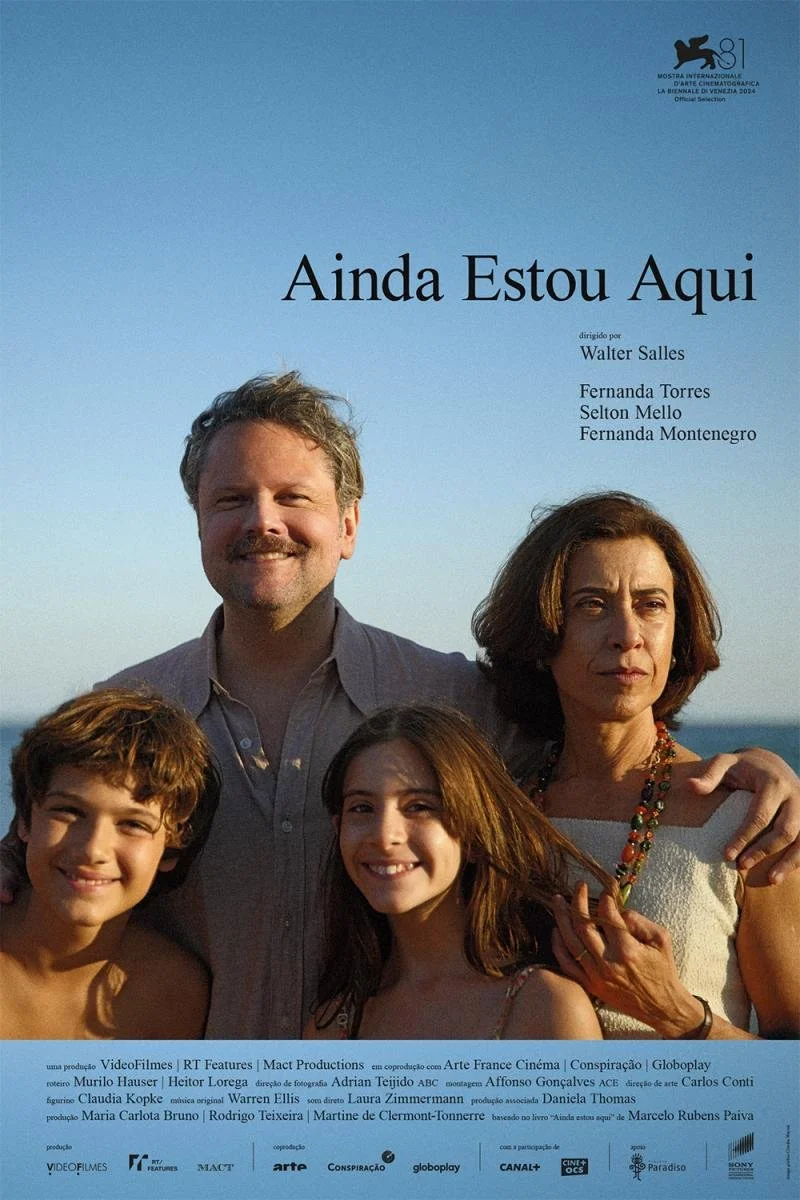Directed by Walter Salles
Starring Maeve Jinkings, Humberto Carrão, Fernanda Montenegro, Selton Mello, Fernanda Torres, Maeve Jinkings, Humberto Carrão
ABOUT THE FILM
I'm Still Here is a gripping drama set in 1971 Brazil, during the tense era of military dictatorship. Eunice Paiva, a mother of five, is forced to reinvent herself after her family becomes the target of a violent and arbitrary act by the government. Based on the biographical book by Marcelo Rubens Paiva, the film explores a hidden chapter in Brazil’s history, shedding light on the personal and political struggles of one family amidst a repressive regime. Through its poignant storytelling, I'm Still Here invites audiences to reflect on the resilience of the human spirit in the face of systemic oppression.
PANEL DISCUSSION FOLLOWS
A distinguished panel will explore the historical and political context of the film, the impact of Brazil’s military dictatorship, and the broader themes of activism, gender, and political transformation. Each panelist brings a wealth of academic knowledge and personal expertise in Latin American history and social movements.
JEFFREY RUBIN, PHD
Associate Professor of History, Boston University
Specializing in Latin American history, Professor Rubin’s books include Decentering the Regime: Ethnicity, Radicalism, and Democracy in Juchitán, Mexico and Sustaining Activism: A Brazilian Women’s Movement and a Father-Daughter Collaboration. He brings invaluable insight into the historical roots of grassroots activism and the intersection of social movements and democracy.
ANJULI FAHLBERG, PHD
Assistant Professor of Sociology, Tufts University
Professor Fahlberg’s research focuses on urban violence and social movements across Latin America. Her recent book Activism under Fire: The Politics of Non-Violence in Rio de Janeiro's Gang Territories delves into the challenges of mobilizing for citizenship rights in the face of armed conflict and police violence, particularly in Rio’s favelas.
MARINA DIAS LUCENA ADAMS, ABD
Doctoral Candidate in History, Brown University
Adams’ work examines the intersection of gender and politics in Brazil, particularly focusing on the Brazilian Women's Movement for Amnesty and the gendered dimensions of Brazil’s transition to democracy after the military dictatorship. Her research aims to understand the political subjectivities of Brazilian women and their role in shaping the nation’s political landscape.
Join for an engaging afternoon that combines film, history, and critical discussion, as we delve into Brazil’s turbulent past and the enduring fight for justice.
